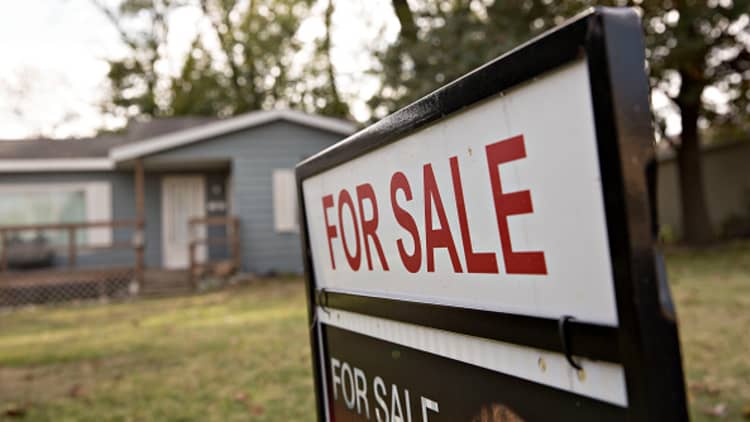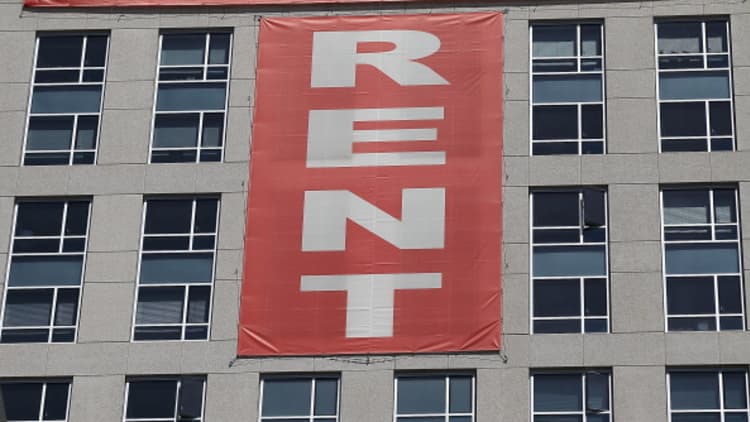
Californians may still love the beautiful weather and beaches, but more and more they are fed up with the high housing costs and taxes and deciding to flee to lower-cost states such as Nevada, Arizona and Texas.
"There's nowhere in the United States that you can find better weather than here," said Dave Senser, who lives on a fixed income near San Luis Obispo, California, and now plans to move to Las Vegas. "Rents here are crazy, if you can find a place, and they're going to tax us to death. That's what it feels like. At least in Nevada they don't have a state income tax. And every little bit helps."
Senser, 65, who previously lived in the east San Francisco Bay region, said housing costs and gas prices are "significantly lower in Las Vegas. The government in the state of California isn't helping people like myself. That's why people are running out of this state now."

Housing problem
Based on the U.S. Census Bureau's American Community Survey data, "lower income Californians are the ones who are leaving, not higher income," said Christopher Thornberg, founding partner of research and consulting firm Beacon Economics in Los Angeles.
He said housing is the chief reason people are leaving California, pointing out there are frequently bidding wars for what limited inventory of homes is available.
A USC Dornsife/Los Angeles Times Poll of Californians last fall found that the high cost of living, including housing, was the most important issue facing the state. It also found more than half of Californians wanted to repeal the state's new gas tax, which raised fees by 40 percent.
"The rate at which California has been losing people to other states has accelerated in the past couple of years, in part because of rising housing costs," said Jed Kolko, chief economist with employment website Indeed.com.
Outbound migration
He said the latest Census Bureau data, from July 2016 to July 2017, show "more people moved out of California to other states than moved in from other states. In other words, California lost people due to domestic migration."
During that 12-month period, California saw a net loss of just over 138,000 people, while Texas had a net increase of more than 79,000 people. Arizona gained more than 63,000 residents, and Nevada gained more than 38,000.
"You can literally have a lot of buying power for the dollar in Southern Nevada versus Southern California," said Christopher Bishop, president of the Greater Las Vegas Association of Realtors. "So it has been a major trend over the year, year and a half, and we're seeing it increase."
Bishop said some people who work for Silicon Valley companies are even working remotely from home in Las Vegas to avoid the higher housing costs in California. But he added, "Most of the people are here because of our growing job market and industries in Las Vegas — and it's not all about casinos anymore."
Data from United Van Lines show some of the most popular moving destinations for Californians from 2015 to 2017 were Texas, Arizona, Oregon, Washington and Colorado. Other experts also said Nevada remains a top destination.
Regardless, some people still want to move to California but are finding it tough to do so because of the high cost of housing.
Trying to return
Michelle Lynn Ostroff, who left the Los Angeles area in 2013, now lives outside Cleveland, Ohio, with her daughter and wants to return to California to be closer to her friends and family. But she's been discouraged from returning so far due to monthly rental prices.
"I'm finding it very hard to make that happen, as finding a place that's affordable is tough," said Ostroff. The L.A. area "is definitely more than two times the amount of rent that I pay."
Indeed, California has five of the top 10 most expensive rental markets nationwide, according to industry tracker Zumper.
San Francisco ranks as the nation's most expensive rental market, followed by New York, according to Zumper's top 10 list. San Jose comes in third place, and Los Angeles in sixth place. Oakland and San Diego also made the top 10.
"For a lot of people, renting is the only option they have because it's tough to afford a house here," said Steve Feldman, a Keller Williams real estate agent in the L.A./San Fernando Valley region.
Expensive rents
The median monthly rent for a one-bedroom apartment in the Los Angeles area is $2,249, and in San Francisco it's almost $3,400, according to Zumper. The median rent for a two-bedroom apartment in the Los Angeles area is $3,200 and in San Francisco about $4,500. By comparison, the median rent for a one-bedroom in Las Vegas is $925 and in Phoenix $945, and for a two-bedroom in Las Vegas $1,122 and in Phoenix $1,137.
"High housing costs are a challenge for employers, who need to offer workers enough so they can afford to live here," said Kolko. "Despite this, California is still hiring, and job growth was strong over the past year."
California's $550,990 median price statewide for an existing single-family home compares with the national median price of $247,800, according to the National Association of Realtors and its state association.
"People who have owned their house for quite a while can cash out with quite a nice bit of money in their hands,' said Feldman. "They can go to another state and buy a house for a fraction of what they have here and tuck away a lot of money and retire, work or bring their cost of living and overhead down."

Middle class leaving
Internal Revenue Service data would appear to show that the middle-class and middle-age residents are the ones leaving, according to Joel Kotkin, a presidential fellow in Urban Futures at Chapman University in Orange, California.
"We know the actual net migration out of California has been growing," said Kotkin.
Furthermore, Kotkin believes the outmigration from California may start to rise among higher-income people, given that the GOP's federal tax overhaul will result in certain California taxpayers losing from the state and local tax deduction cap. "They are the ones who will tend to have the high property taxes and rely on writing it off," he said.
California is often criticized as one of the highest-taxed states in the nation.
Last year, Gov. Jerry Brown, a Democrat, signed a 12-cent-per-gallon increase in the state's excise tax on gasoline, bringing the tax to 41.7 cents per gallon, or a 40 percent jump. Drivers in California already pay the highest average for gasoline after Hawaii.
'Highest taxes in USA'
Even Republican California Rep. Devin Nunes took a swipe at his state last week in a tweet, calling it out for the "highest taxes in USA that make it hard for people to afford to live there."
https://twitter.com/DevinNunes/status/969752756800991232
H.D. Palmer, a finance spokesman for California's governor, said "it's correct that our top marginal personal income tax rate is highest — 12.3 percent, not including the 1 percent surcharge for millionaires under Prop 63 (to fund mental health services)." However, he said "looking solely at those rates alone provides an incomplete picture."
Palmer said when including tax collections per $100 of personal income, though, California ranks number 10 nationwide, based on 2015 state and local revenue data tracked by the Federation of Tax Administrators. Minnesota, New York, New Jersey and North Dakota all come in higher in terms of tax burdens.


